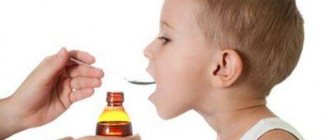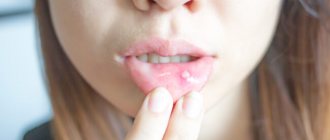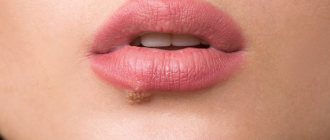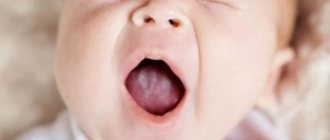The main thing in caring for a newborn boy is taking care of his skin. In infants, it is a sensitive organ that is both a way of interacting with the world and a protective barrier. The baby's skin is formed from cells of the same type as the nervous system, and therefore contains many receptors. Skin is a kind of mirror in which the well-being and health of the baby is reflected.
The skin also performs a respiratory function: 60% of all gas exchange occurs through it. Meanwhile, the thickness of the skin in a newborn baby is only 0.4 mm (in an adult - 2 mm), and the barrier stratum corneum is initially absent. That's why baby's skin is more susceptible to infections and various factors: water, heat, solar radiation, wind and, of course, detergents. It is not surprising that about 10% of doctors’ calls to children are related to skin diseases. Proper care of your baby's skin and careful selection of cosmetics will help you avoid many unnecessary problems.
Caring for a newborn: intimate hygiene
Almost every mother of a newborn boy has three main questions:
- To wash or not to wash your baby after every diaper change?
- Should I open the foreskin of the glans penis while washing?
- Is it harmful for a child to wear diapers?
Let's answer them in order:
To wash or not to wash – that is the question
Caring for a newborn boy necessarily includes washing. Boys should be washed no less often than girls! That is, every 2-3 hours or with every diaper change. Unlike girls, boys can be washed in any direction, even from front to back, even vice versa, you can’t just do it in the pelvis (after defecation). Residues of enzymes and undigested food can cause infection of the genitourinary organs and irritation of the perineum, leading to diaper rash. Therefore, you only need to wash the boy with running water. And after washing, do not rush to put on a diaper and dry the skin properly. The more air baths your baby takes, the better for his skin! It is not recommended to use soap, solutions of soda and potassium permanganate and other detergents when washing, so as not to deprive the baby’s skin of the protective glycolipid mantle. After washing, inguinal folds and irritated areas can be lubricated with hygienic oil - olive, almond (sold at the pharmacy). The scrotum and penis do not need to be lubricated.
| This is important to know! If the appearance of the penis makes you wary: for example, it is red, swollen, or inflates when urinating, contact a pediatric urologist immediately. |
Failure to comply with the rules of intimate hygiene in a newborn boy can lead to balanoposthitis (inflammation of the glans penis) and a stage of phimosis (growth of the foreskin), which can only be corrected surgically. Inflammation of the genital organs suffered by a boy in childhood can result in infertility, impotence, prostatitis and other unpleasant problems in adulthood. Proper care of a newborn boy is the key to his good male health in the future.
Foreskin: to open or not to open the head of the penis?
Modern, progressive doctors strongly recommend leaving the foreskin of boys until they are 5–6 years old alone. At an earlier age, the inner surface of the foreskin is still firmly connected to the head of the penis. This phenomenon is absolutely normal; in medical language it is called physiological phimosis. Premature shifting of the baby's foreskin leads to the formation of small wounds, which, when healing, leave scars, which leads to an even greater narrowing of the foreskin.
| This is important to know! If your baby has been circumcised, the penis will be red and produce a yellowish secretion for the first week. Make sure that the redness gradually disappears and that a weeping yellow crust does not form on the head of the penis. If this happens, contact a pediatric urologist immediately. |
Diapers: yes or no?
There is an opinion that constantly wearing diapers overheats the baby’s genitals, disrupting their natural formation and the process of sperm production. Studies were conducted at the Scientific Center for Children's Health, which showed that an increase in temperature by 2 ºС due to the use of diapers does not affect sexual function and the formation of the genital organs. This is also supported by the fact that a generation of children has already matured who grew up in diapers, but at the same time successfully have their own babies (although the percentage of primary male infertility has definitely increased these days, no matter what causes it). But experienced experts still recommend not keeping your baby in diapers all the time.
Sometimes a baby becomes allergic to a diaper, or rather, not to the diaper itself, but to the materials from which it is made. This doesn't mean you need to give up diapers altogether. Just change the manufacturer and always make sure that the diaper matches the baby's weight. For allergies in newborns, it is very good to use “natural baby swaddling systems.” At the first stage of their use, they require a little more time to learn than regular disposable diapers, but later, once you get used to them, you will appreciate that, firstly, they are more environmentally friendly, and secondly, in the end they are cheaper to use than disposable ones.
Thrush on the chest
Breastfeeding is a very important process, which is sometimes fraught with difficulties. One possible problem is nipple candidiasis, which can cause discomfort for mother and baby.
Cause of candidiasis
The causative agent of thrush is the fungus Candida albicans. After it penetrates the damaged skin of the nipples, inflammation begins. One of the most common causes of candidiasis is the reaction of the female or child’s body to taking antibiotics. In addition to pathogenic microflora, such drugs also destroy beneficial bacteria, resulting in favorable conditions for the active proliferation of fungi. Often, nipple thrush occurs in parallel with oral candidiasis in infants.
How to treat
Before prescribing a nursing mother a course of drug therapy, the doctor may take a smear to confirm the infection. If the diagnosis of candidiasis is confirmed, the woman will be prescribed antifungal treatment. At the same time, medications will have to be given to the child, since pathogenic microorganisms multiply rapidly, and thrush easily spreads by touching.
Despite the fact that a woman needs to use medications, breastfeeding can and should be continued. This is due to the fact that in mild cases, it is sufficient to use external medications for the lesions, which is carried out after feeding. In advanced forms of candidiasis, mothers may be prescribed medications for systemic use (tablets). In this case, the issue of breastfeeding should be discussed with your doctor.
To prevent the spread of fungal infection during treatment, you must adhere to the following rules:
1. Mom should wash her hands thoroughly after any contact with the mammary glands, changing diapers, or applying medicine to the breast.
2. All family members must use personal towels.
3. Breast pads should be changed as often as possible.
4. All toys, pacifiers, pacifiers, and objects that the baby can put in his mouth must be sterilized or thoroughly washed.
5. Bed linen should be washed at the highest possible temperature, and after drying it should be ironed.
6. If a mother with nipple thrush expresses milk, it should not be given to the baby until the course of therapy has been completed, as there is a risk of re-infection. Low temperatures cannot destroy the fungus, so milk should not be frozen.
Main symptoms of candidiasis
You can suspect the development of thrush based on the characteristic symptoms. There is pain in the nipples or breasts, which does not go away for a long time after feeding. Visually, redness of the skin in the nipple area, rash and peeling are detected, and itching is disturbing.
In children, candidiasis manifests itself in the form of a whitish, cheesy coating on the oral mucosa, which cannot be removed with a napkin. A white film may appear on the lips, and anxiety increases during breastfeeding. In some cases, thrush is accompanied by diaper dermatitis.
If a woman experiences pain in one breast or nipple, an increase in body temperature, or a red spot on one of the mammary glands, she should immediately go to the hospital for examination, since these symptoms are not typical for candidiasis.
Caring for a newborn boy: bathing
Caring for a newborn up to six months of age involves daily bathing. In the future, you can bathe the baby every other day or even two. Bathing is intended, first of all, not to cleanse dirt (a baby who cannot walk or crawl does not get particularly dirty yet), but to wash away the waste products of the sebaceous and sweat glands from the skin and give it the opportunity to breathe fully.
At the beginning of life, a newborn has a neutral skin pH and is therefore very vulnerable to bacteria and external influences. Only by six months the environment becomes more acidic and a protective glycolipid mantle forms on the skin. It should be protected from excessive use of detergents and maintained by lubricating the skin with natural oils. Olive, almond and other natural oils have a composition similar to that of sebum, so they easily penetrate deep into the skin and saturate it with beneficial substances that increase its protection. After each bath, you can carefully lubricate all the folds of the newborn’s skin with a thin layer of sterile hygienic oil, baby cream or milk. Close attention should be paid to the area behind the ears, where the delicate skin often gets wet and crusts form. After six months, you can moisturize your baby’s skin as needed.
Herbal medicine - the use of herbal decoctions - is at your discretion, just do not forget the fact that recently more and more babies are born with a predisposition to allergies.
| This is important to know! For diaper rash, especially associated with erosion, the skin should not be treated with oils, creams and alcohol-containing solutions. It is necessary to consult a pediatrician, he will select special disinfectants and drying agents. You can return to moisturizing your skin when your skin stops getting wet. You should also know that diaper rash in the perineal area is not necessarily a consequence of improper care. This may be the first symptom of atopic dermatitis. Consult a pediatrician or pediatric dermatologist (for an appointment call: +7 (495) 229–44–10, +7 (495) 954–00–46). |
Dear patients!
Young mothers often do not know how to handle newborn babies: how to care for them, wash them, change diapers. It’s good if there is a wise grandmother nearby who will help and advise. And if not?
After all, the issue of hygiene is a very important part of caring for your baby, especially if you have a girl. Her future women's health depends entirely on her mother.
How correctly you instill in your daughter the skills of daily hygiene from childhood, the healthy woman she will be.
Many health problems, as we know, come from childhood: the mother did not teach her daughter to use the daily toilet, and hence in the future - constant inflammation of the female genital area, pathological discharge, itching.
"What's the connection?" - you ask? Let's try to figure out which one.
What do you need to know about the physiology of girls?
The genitals of a little girl and an adult woman differ from each other in size and structure.
The labia majora of a newborn are almost always swollen and do not completely cover the labia minora. The clitoris is large. The baby's uterus and ovaries are located in the abdominal cavity.
The length of the urethra of a newly born baby is slightly more than 1 cm. All kinds of microbes can easily overcome this distance and cause inflammatory diseases of the genitourinary system.
That is why personal hygiene must be observed by a young mother!
The skin of a little girl's genitals is very vulnerable. From exposure to detergents, the use of washing powder for adult clothes, or an incorrectly selected diaper, the mucous membrane quickly turns red and signs of inflammation appear. In addition, if feces and urine come into contact with the baby's delicate skin, diaper rash may occur.
To protect the delicate genital area of a newborn and prevent infection from entering the body, you need to bathe the child every day, paying special attention to the genitals.
- Soon after birth, the mother may notice spotting . This phenomenon is called a “hormonal crisis” and should not make you feel afraid.
- This is how the child’s body reacts to the increased level of maternal hormones that penetrate the placenta. After birth, they enter the body along with mother's milk.
- This is a non-painful condition that does not require any treatment. Everything will gradually pass by itself. During this period, it is also especially important to pay due attention to the hygiene of the daughter’s genital organs.
Every mother should know that an oily white secretion accumulates between the labia majora and minora of the baby. This is also normal.
But if such discharge is not removed in time with a cotton swab, it can cause itching, redness of the skin and contribute to the development of inflammation.
So, by paying special attention to the hygiene of the genitals of your newborn daughter, you save the baby from serious problems that can have a detrimental effect on women’s health in the future.
About washing and rinsing
Compliance with the rules of a girl’s intimate hygiene is not just a banal concern for cleanliness. This is also the prevention of all kinds of diseases. Therefore, a newborn girl can not only be washed, but also necessary.
The delicate folds of the labia should be wiped with a damp cotton pad, slightly opening them with a gentle movement of the hand.
- When starting to wash your child, wash your hands well . The nails on your hands should be cut short so as not to accidentally injure your daughter’s delicate skin.
- The baby should be washed after each bowel movement, before going to bed, and in the morning after waking up. After urination, it will be enough to wipe the child’s genitals and folds with a damp cloth.
- to wash your newborn daughter with boiled water . After all, ordinary tap water contains a lot of microbes that can become a source of infection for your baby.
Every mother should remember that washing the girl should start from the vagina, proceeding to the perineum, anus and buttocks.
If you wash your baby under the tap, place her on your left arm with her tummy up. Move down from the vaginal slit, gently washing away impurities from the delicate skin.
When this step is complete, pat your baby's skin dry with a soft towel. You should not wipe the baby, as this can cause redness and irritation of the skin. After the procedure, wrap the baby’s legs in a diaper and take them to the room for further processing.
When washing your newborn, never use soap. It can dry out delicate baby skin. If you need to remove a dried piece of stool, moisten the area with baby oil. After a while, the dirt can be easily washed off with water.
A separate towel and a small washcloth should be provided for the baby. From the cradle, teach your daughter the basic rules of personal hygiene. This way you will take care of your daughter's reproductive health.
Underwear and diapers
A young mother has a lot of trouble with her little daughter: she learns to understand her child without words, to care for the baby. In addition, the burden of caring for the home falls on the woman's shoulders.
How to choose diapers for a girl? It's good that disposable baby diapers have now been invented. Without the use of diapers, the life of a modern mother would be much harder. But they also need to be used correctly.
To avoid diaper rash in a child, the baby should be given air baths from time to time. After each diaper change, leave your baby naked for 5-7 minutes. Then wash the girl or blot her skin with a damp cloth and put on a clean diaper.
This operation should be performed every 3-4 hours and after defecation. Do not buy cheap diapers from a dubious manufacturer; do not expose your baby’s genitals to danger.
By following these simple rules, you will save your baby's skin from diaper rash and irritation.
Buy underwear for your daughter only from natural fabrics: give preference to items made from cotton or linen. Such fabrics allow air to pass through perfectly, allowing the skin to breathe.
Panties and panties should not restrict the baby's movement or tighten the genitals.
For a grown-up baby, don’t buy such popular “thongs!”
This is absolutely unhygienic: such underwear eats into the delicate skin of the genitals and can cause irritation and inflammation.
Never wash your daughter's clothes with an adult. There are special products for washing baby clothes that are not capable of causing allergic reactions in the baby’s delicate skin.
In what cases is it necessary to consult a doctor?
In what cases should you consult a doctor? It happens that a mother notices unusual discharge from her daughter’s genital tract and redness of the vulva. Sometimes this is a meaningless factor that is caused by some irritant.
Usually this problem can be dealt with at home. It will be enough to wash the baby with decoctions of anti-inflammatory herbs for several days and there will be no trace of irritation.
But there are also situations that require immediate consultation with a doctor:
- the discharge has an unpleasant odor, green or bright yellow color;
- The labia minora have fused together, forming adhesions.
- Doctors call this phenomenon synechia. The cause may be either a reduced level of the hormone estrogen or an inflammatory process.
- Do not try to separate the lips yourself!
- The pediatric gynecologist will determine the cause of the discharge and itching and, if necessary, prescribe appropriate treatment.
- To treat the adhesive process of the labia minora, surgical or local treatment can be used.
If you experience foul-smelling vaginal discharge, redness of the vulva, or itching, be sure to consult a doctor. These symptoms may indicate infections, vitamin deficiency, or a foreign body entering the vagina.
Always remember that by taking care of your daughter’s hygiene today, you are preventing serious problems for her in the future. May your girl be healthy and happy!









